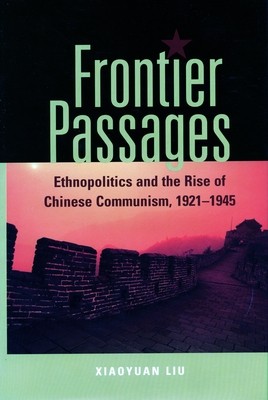
- We will send in 10–14 business days.
- Author: Xiaoyuan Liu
- Publisher: Stanford University Press
- Pages: 240
- ISBN-10: 0804749604
- ISBN-13: 9780804749602
- Format: 15.9 x 24 x 2.3 cm, hardcover
- Language: English
- SAVE -10% with code: EXTRA
Reviews
Description
In this pathbreaking book, Xiaoyuan Liu establishes the ways in which the history of the Chinese Communist Party was, from the Yan'an period onward, intertwined with the ethnopolitics of the Chinese "periphery." As a Han-dominated party, the CCP had to adapt to an inhospitable political environment, particularly among the Hui (Muslims) of northwest China and the Mongols of Inner Mongolia. Based on a careful examination of CCP and Soviet Comintern documents only recently available, Liu's study shows why the CCP found itself unable to follow the Russian Bolshevik precedent by inciting separatism among the non-Han peoples as a stratagem for gaining national power. Rather than swallowing Marxist-Leninist dogma on "the nationalities question," the CCP took a position closer to that of the Kuomintang, stressing the inclusiveness of the Han-dominated Chinese nation, "Zhongua Minzu."
EXTRA 10 % discount with code: EXTRA
The promotion ends in 17d.01:46:34
The discount code is valid when purchasing from 10 €. Discounts do not stack.
- Author: Xiaoyuan Liu
- Publisher: Stanford University Press
- Pages: 240
- ISBN-10: 0804749604
- ISBN-13: 9780804749602
- Format: 15.9 x 24 x 2.3 cm, hardcover
- Language: English English
In this pathbreaking book, Xiaoyuan Liu establishes the ways in which the history of the Chinese Communist Party was, from the Yan'an period onward, intertwined with the ethnopolitics of the Chinese "periphery." As a Han-dominated party, the CCP had to adapt to an inhospitable political environment, particularly among the Hui (Muslims) of northwest China and the Mongols of Inner Mongolia. Based on a careful examination of CCP and Soviet Comintern documents only recently available, Liu's study shows why the CCP found itself unable to follow the Russian Bolshevik precedent by inciting separatism among the non-Han peoples as a stratagem for gaining national power. Rather than swallowing Marxist-Leninist dogma on "the nationalities question," the CCP took a position closer to that of the Kuomintang, stressing the inclusiveness of the Han-dominated Chinese nation, "Zhongua Minzu."


Reviews